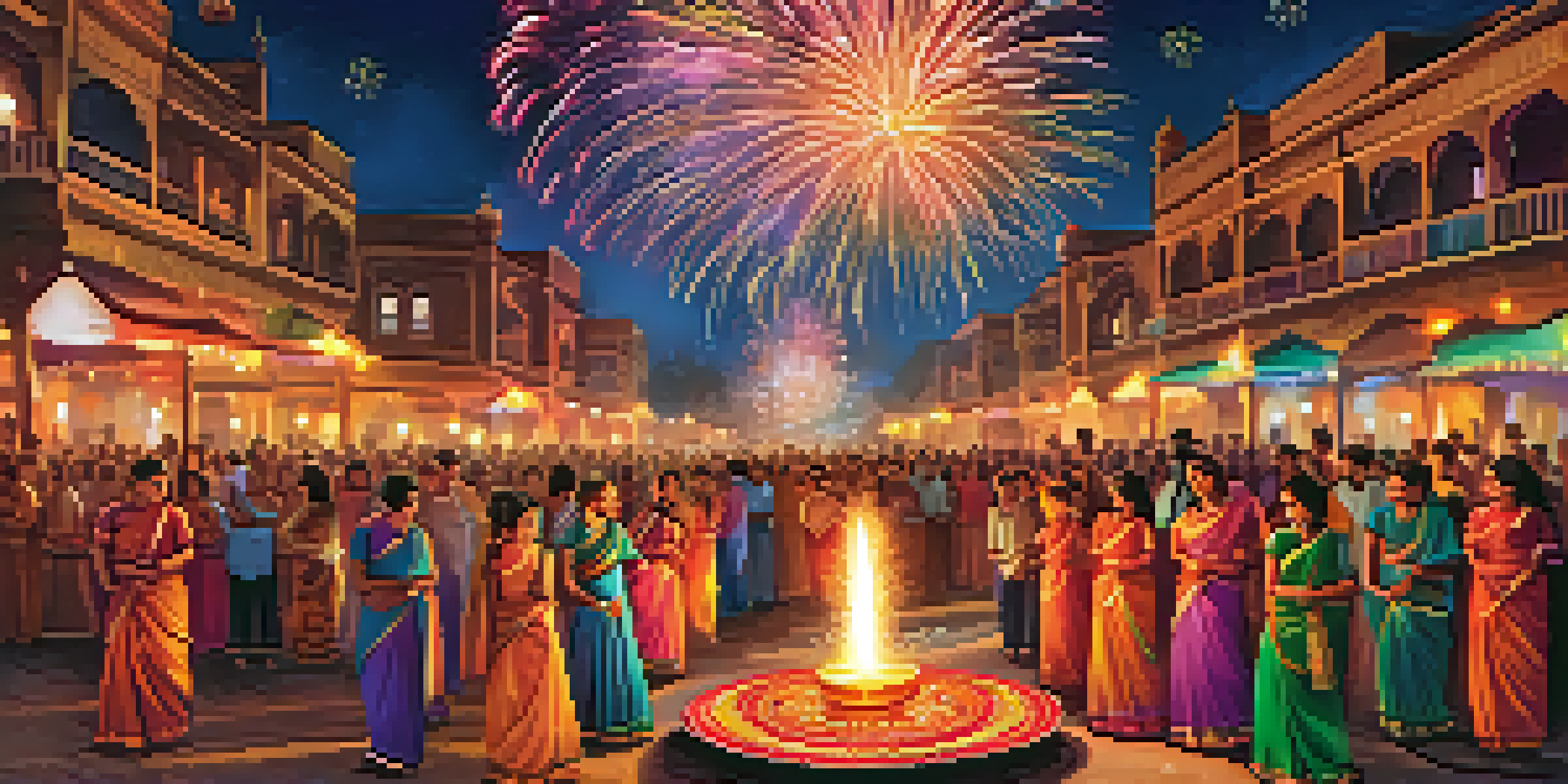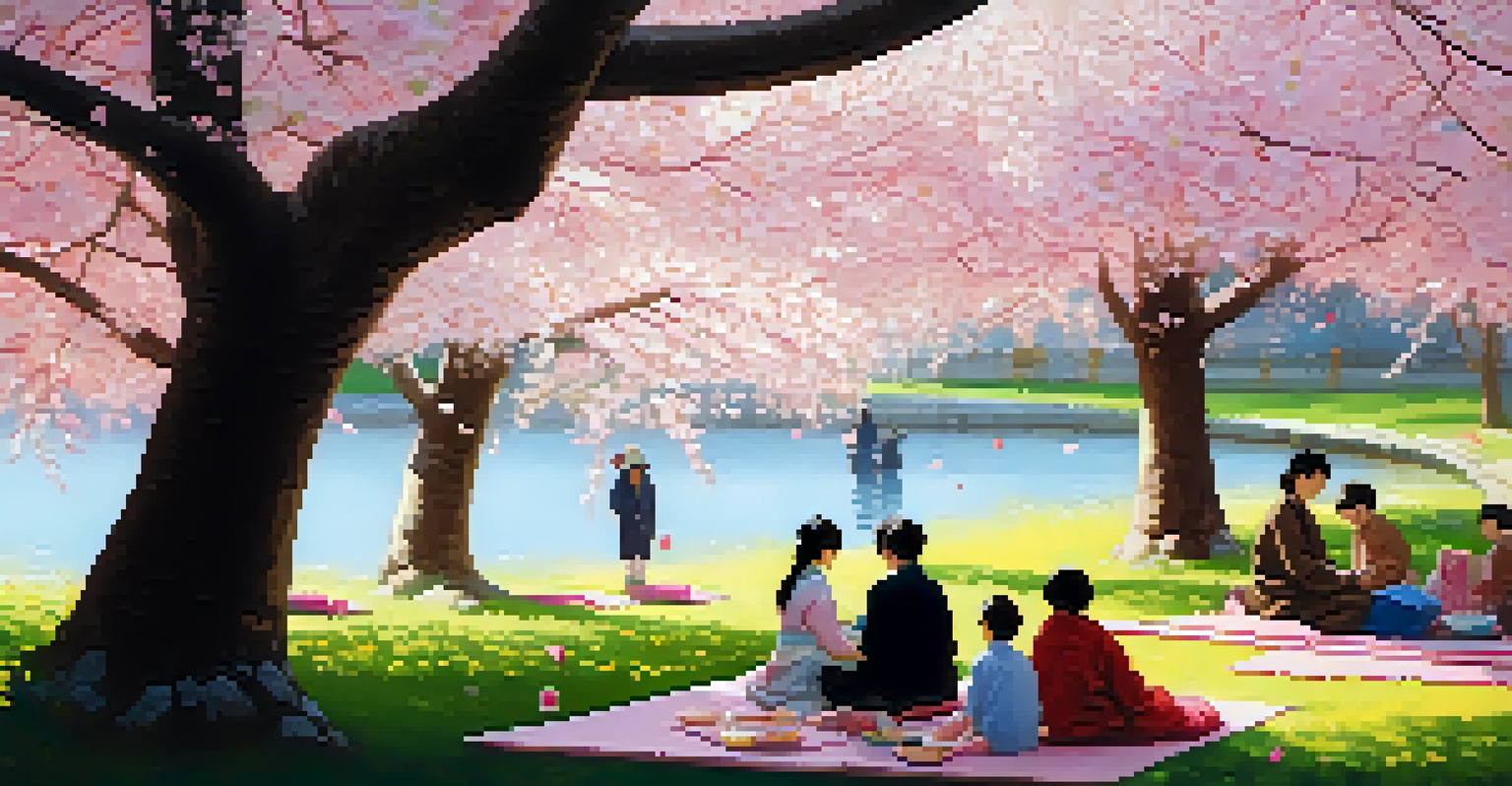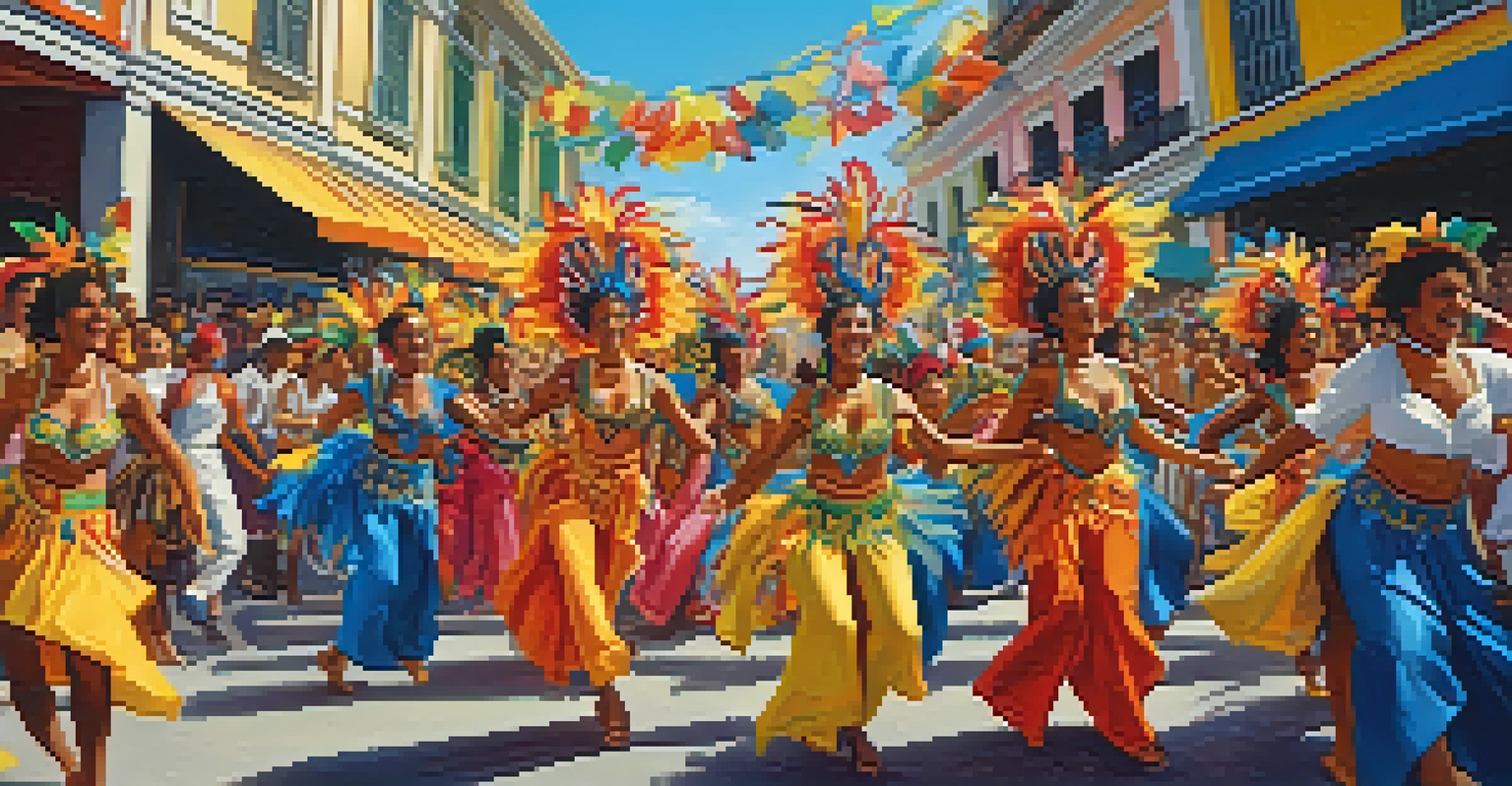How Spirituality Shapes Global Festivals and Celebrations

The Roots of Spirituality in Cultural Celebrations
Spirituality often serves as the backbone of many cultural celebrations around the world. From Diwali in India to Christmas in the West, these festivals are steeped in spiritual significance that reflects the beliefs and values of the communities involved. Understanding these roots helps us appreciate how different cultures express their spirituality through vibrant traditions and rituals.
Festivals are a way of bringing people together to celebrate their shared beliefs and values, creating a sense of community and belonging.
For example, during Diwali, the festival of lights, Hindus celebrate the victory of light over darkness, a central tenet in many spiritual beliefs. This celebration is marked by the lighting of lamps and fireworks, symbolizing the inner light that protects us from spiritual darkness. Such practices not only create a sense of community but also reinforce the spiritual messages behind the festival.
As we explore global festivals, we can see that spirituality provides a common thread that connects diverse cultures, making these events more than just celebrations—they become a way for people to express their values, hopes, and collective identities.
Rituals: The Heart of Spiritual Celebrations
Rituals are a fundamental aspect of festivals, acting as a bridge between the spiritual and the physical world. Whether it's a prayer, a dance, or a communal feast, these rituals are often grounded in spiritual beliefs that offer participants a sense of connection to something greater than themselves. This connection can foster feelings of belonging and community during celebrations.

Take, for instance, the ritualistic practices of the Day of the Dead in Mexico. Families create altars for their deceased loved ones, showcasing the spiritual belief in honoring those who have passed. This celebration is marked by vibrant decorations, food, and music, all serving to connect the living with the spirits, making the festival a deeply spiritual experience.
Spirituality Enriches Cultural Festivals
Spirituality serves as a foundational element in cultural celebrations, reflecting community values and collective identities.
Through such rituals, festivals become a tapestry of shared beliefs and practices, allowing individuals to participate in a legacy that transcends time, further enriching the spiritual essence of the celebration.
The Role of Music and Dance in Spiritual Festivals
Music and dance often play pivotal roles in spiritual celebrations, acting as expressions of joy, reverence, and connection. These art forms can evoke deep emotions, transporting participants to a place of spiritual reflection and communal bonding. From the rhythmic drumbeats of African tribal ceremonies to the elegant movements of Indian classical dance, each form carries its own spiritual significance.
In every culture, music and dance resonate with the soul, connecting individuals to a larger spiritual narrative.
During the Brazilian Carnival, for example, samba music and dance are not just entertainment; they embody the spirit of joy and freedom that has deep roots in Afro-Brazilian spirituality. Participants engage in a collective experience that celebrates life and community, illustrating how music and dance can amplify spiritual messages during festivals.
By incorporating music and dance, festivals transform into immersive experiences that resonate with the soul, allowing individuals to express their spirituality in vibrant and dynamic ways.
Nature and Spirituality in Global Celebrations
Many festivals around the world are deeply intertwined with nature, reflecting spiritual beliefs that honor the environment. This connection often manifests through seasonal celebrations, harvest festivals, and rituals that pay tribute to the earth's cycles. Such festivals remind us of the spiritual significance of our relationship with nature.
For instance, the Japanese celebration of Hanami, or cherry blossom viewing, is not just about enjoying the blooms; it's a time to reflect on the transient beauty of life, a concept deeply rooted in Shinto beliefs. People gather under the cherry trees, appreciating the fleeting beauty of the blossoms and recognizing nature's spiritual teachings.
Rituals Foster Connection and Belonging
Rituals within festivals bridge the spiritual and physical worlds, fostering a sense of belonging among participants.
By celebrating nature, these festivals encourage mindfulness and gratitude, prompting individuals to connect spiritually with the world around them, fostering a deeper appreciation for the environment.
Globalization and the Evolution of Spiritual Festivals
As the world becomes more interconnected, spiritual festivals are evolving, often blending traditions from different cultures. Globalization allows for the sharing of spiritual practices and ideas, resulting in unique celebrations that honor diverse beliefs while maintaining core spiritual themes. This evolution reflects a growing appreciation for multiculturalism and inclusivity.
Take the example of the Holi festival, often celebrated with vibrant colors and joyous festivities. While originally a Hindu spring festival, Holi has gained international popularity, with people from various backgrounds participating in the celebrations. This allows for the exchange of spiritual values and practices, creating a rich tapestry of shared experiences.
Through this blending of traditions, spiritual festivals not only preserve their original meanings but also evolve to include new interpretations, making them relevant in today's diverse world.
Spirituality and Charity in Celebratory Events
Many festivals incorporate themes of charity and giving, rooted in spiritual beliefs that emphasize compassion and community support. This aspect of spirituality encourages individuals to extend their celebrations beyond personal enjoyment to include acts of kindness and generosity. Through charitable initiatives, festivals often aim to uplift those in need, reinforcing the spiritual values of empathy and connection.
For example, during Ramadan, Muslims engage in acts of charity called Zakat, where they give to the less fortunate as part of their spiritual obligations. This practice not only enhances the sense of community during the festival of Eid but also highlights the importance of sharing blessings with others.
Globalization Shapes Festival Traditions
Globalization leads to the blending of traditions in spiritual festivals, creating unique celebrations that honor diverse cultural practices.
By intertwining spirituality and charity, festivals create opportunities for individuals to reflect on their values and the impact of their actions, fostering a spirit of generosity that resonates throughout the celebrations.
The Future of Spiritual Festivals in a Changing World
As we look to the future, the role of spirituality in global festivals will undoubtedly continue to evolve. With the challenges of modern life, many people seek deeper connections and meaning in their celebrations, prompting a resurgence of interest in spiritual practices. This shift may lead to the revitalization of traditional festivals or the creation of new ones that reflect contemporary spiritual beliefs.
For instance, the rise of mindfulness and wellness trends has resulted in festivals that focus on holistic well-being, integrating yoga, meditation, and spiritual workshops into traditional celebrations. These new adaptations allow individuals to explore their spirituality in ways that resonate with their current lifestyles.

Ultimately, the future of spiritual festivals lies in their ability to adapt while remaining grounded in the core values that have shaped them for centuries, ensuring they continue to inspire and connect people across the globe.